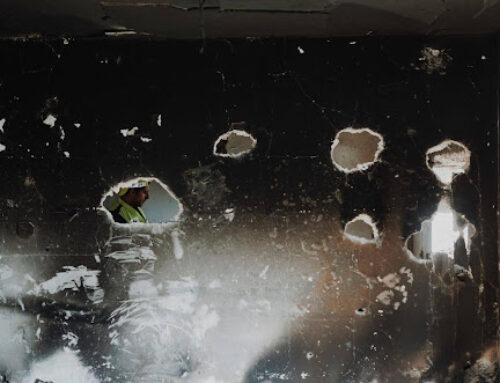Two Cheers for the New Israeli Government
By Paul Scham
Partners for Progressive Israel congratulates the new Israeli government and Prime Minister Naftali Bennett. The removal of Benjamin Netanyahu after 12 consecutive years of increasingly authoritarian rule is a victory of democracy in Israel and a successful pushback against the tide of corruption that Netanyahu has embodied. We have to recognize that significant elements of the Israeli right stood up for democracy in preference to ideology, and we must acknowledge their difficult choice.
At the same time, we who support an Israel that ends the Occupation and provides equal resources and justice to its entire population recognize that this government is unlikely to move Israel in any progressive direction. Naftali Bennett, Gideon Saar, and Avigdor Lieberman, the leaders of the three avowedly right wing parties in the new coalition, are on record for their entire political careers as supporting the Occupation and any number of laws and policies that oppress the Palestinian population, both citizens of Israel and those living under Occupation. Yair Lapid, the mastermind of the coalition, and Benny Gantz, the respective leaders of the two centrist parties in the coalition, seem to support the status quo on these issues. Labor and Meretz, led by Meirav Michaeli and Nitzan Horowitz respectively, with a combined total of 13 seats, hold little power, though heading three ministries. The inclusion of Ra’am, aka the United Arab list, a conservative Islamic party, is itself an extremely important step in integrating Palestinian citizens of Israel into the political process, but the party opposes many of the progressive policies we support, including, for example, LGBTQ rights.
Nevertheless, we have hopes for the coming period, because the only thing that can keep this strange, even bizarre, coalition together at all, is character and compromise, since ideology is out of the picture. This is recognized implicitly in the coalition agreement – and even in the existence of the coalition itself.
It is important for us on the left, especially in such a polarized time, to remember that rightwing views are not indicative of a character flaw. Right-wingers can be sincere democrats. Even extreme nationalists, so long as they avoid racism, can be in this camp. However, the only way to know if they are indeed respectful of democracy is to see them in action.
The coalition agreement can be viewed as a shackle or as a liberation; indeed as both simultaneously. If it works as envisioned, it will take the most important, indeed existential, issues off the table. There will not be an end to occupation nor any movement towards a Palestinian state. Israel will not try to come to an accommodation with Hamas or even the Palestinian Authority, except on security matters. Israel will continue to oppose any rapprochement with Iran, especially the JCPOA. In these matters and others, the status quo will rule.
On the other hand, there should be no push for annexation of large chunks of the West Bank, dear as that is to Bennett’s heart. The Occupation will continue, but it will not be expanded. Labor Chair Meirav Michaeli will be transportation Minister and perhaps will be able to whittle down the almost 3 billion shekels now committed to settlement infrastructure in the occupied territories.
Meretz will have three ministries: Party chair Nitzan Horowitz at Health, Tamar Zandberg at Environment, and Issawi Freij at Regional Cooperation. Freij will be the first Arab citizen in Israeli history to be a full member of the cabinet.
Moreover, if the agreement works as planned, new initiatives based on rightwing or leftwing agendas will be vetoed by one side or the other. This government is explicitly intended to be a reversion to traditional collective rule by the cabinet, i.e. the government, as opposed to prime ministerial rule, and reverse the creep towards the presidential model, which has been observed in Israel and other parliamentary systems. Thus, journalists who are asking “What will Bennett do,” are asking the wrong question. The question should be, “What will this government do,” given all the constraints built into it.
So what can it do, given these constraints? Plenty! For example:
- Passing a budget for 2021(!)
- Dealing with the criminal violence engulfing many Arab towns
- Deepening relations with the (non-Palestinian) Arab world
- Opposing Iran
- Repairing relations with the U.S.
- Infrastructure
In Israel today, despite polarization around security issues and Bibi himself, everything has not been polarized and weaponized. The issues listed above and others can be tackled and, given a willingness to compromise, much can be done. These are issues that any government must deal with and, in Israel, left and right are not as economically polarized as they are in the US.
Please note that I am not trying at all to idealize the new government. It is understandable that most Palestinians, Israeli citizens or not, reject it, because it is unlikely to have the slightest regard for Palestinian national rights. Thus, Israeli-Palestinian relations are likely to fester – including the real possibility of another war like last month’s. However, without abandoning ideology, there is much that could be done to make the lives of Palestinians under occupation easier, even in the absence of national rights.
The whole experiment could indeed fall apart at any moment. However, if there is respect for the well-known red lines of each party in the coalition, it could actually work. It could even last two years, till Lapid is schedule d to be prime minister, or even four, its statutory length. More important, it could heal some of the wounds of the last few years, and prepare the ground for a less polarized politics, with more support for the goals shared by the Israeli left and us, its US supporters.
___

Paul Scham is President of Partners for Progressive Israel and the Director of the Gildenhorn Institute for Israel Studies at the University of Maryland.







Leave A Comment